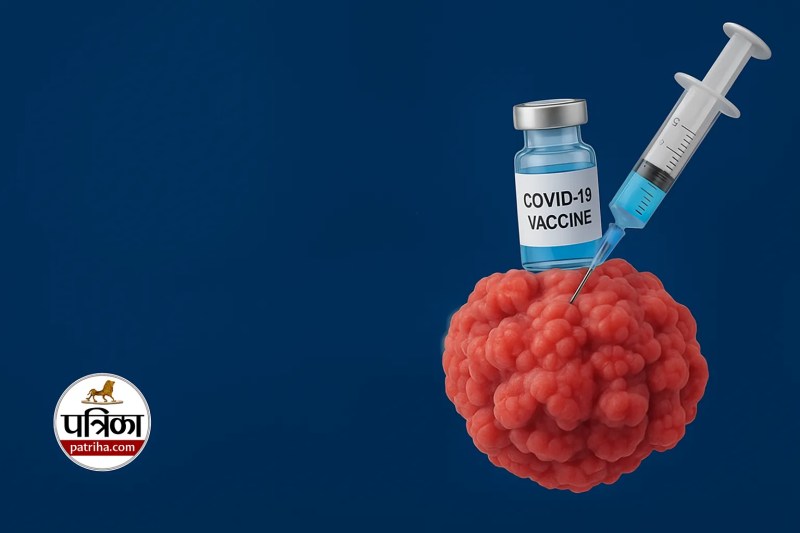
COVID-19 Vaccine (Image: AI)
COVID-19 Vaccine: Since the advent of the COVID-19 vaccine, it has not only offered hope against the virus but also against another major disease: cancer. A recent study has surprised everyone, revealing that the most widely used mRNA COVID-19 vaccines, such as Pfizer and Moderna, could prove to be an unexpected boon for some cancer patients.
It may sound strange, but this is not about protection from COVID infection. The real story lies with a special molecule used in the vaccine, mRNA (messenger RNA).
Researchers at MD Anderson Cancer Center found that patients with advanced lung or skin cancer (melanoma) who were receiving a modern immunotherapy drug called a checkpoint inhibitor, and who received the Pfizer or Moderna vaccine within 100 days of starting treatment, survived significantly longer compared to other patients.
According to the researchers: The mRNA in the vaccine acts as a siren for the body's immune cells. It activates the immune system so rapidly that it responds better even to tumours that typically resist immunotherapy. In simple terms, the vaccine makes cancer treatment even more powerful!
Our immune system often destroys cancer cells before they can grow. However, some tumours are clever; they hide themselves to evade immune attack, as if they have donned an invisible cloak. Checkpoint inhibitors remove that cloak. But sometimes, the patient's immune cells still fail to recognise the tumour.
mRNA vaccines overcome this hurdle. They awaken the immune cells, enabling them to recognise and destroy tumours more effectively.
Dr. Adam Grivas, the lead researcher at MD Anderson, in collaboration with researchers from the University of Florida, stated, "We are making immune-resistant tumours sensitive to immunotherapy."
mRNA is not new; it is naturally found in every cell of our body and carries genetic instructions for making proteins. This Nobel Prize-winning technology is not just known for COVID-19 vaccines. Scientists have been trying for decades to create personalised mRNA 'therapeutic vaccines' for cancer that can train immune cells to recognise the unique characteristics of a patient's tumour.
Dr. Jeff Coller, an mRNA expert at Johns Hopkins University (who was not involved in this work), commented, "This new research provides a very good clue that perhaps even non-personalised mRNA vaccines can work against cancer. It shows that mRNA medicines continue to surprise us with how beneficial they can be for human health."
The research team analysed the records of approximately 1,000 advanced cancer patients undergoing checkpoint inhibitor treatment at MD Anderson:
Lung Cancer Patients: Patients who received the vaccine survived for nearly twice as long three years after starting cancer treatment compared to unvaccinated patients.
Melanoma Patients: Vaccinated patients had significantly longer median survival.
No difference was observed with other non-mRNA vaccines (like the flu shot).
This discovery is so significant that researchers are now preparing for another rigorous study to confirm whether mRNA coronavirus vaccines should be routinely administered alongside cancer drugs. In the future, they also plan to design new specialised mRNA vaccines for cancer.
This research could be a major leap in medical science, demonstrating how a technology developed from a global pandemic can now help us fight another devastating disease! It is a beacon of great hope for cancer treatment and patients.
Published on:
23 Oct 2025 03:25 pm
Big News
View AllHealth
Trending
Lifestyle

